
Serenity and Adventure at Gulf Islands National Park Reserve
Discover the natural beauty and rich cultural heritage of Gulf Islands National Park Reserve, a pristine paradise for outdoor enthusiasts and wildlife lovers.
Nestled between Vancouver Island and the mainland of British Columbia, Gulf Islands National Park Reserve offers a perfect blend of serene natural beauty and exciting outdoor activities. This park reserve is a haven for nature lovers, with its lush forests, rugged cliffs, and tranquil beaches. The network of islands, each with its own unique charm, provides endless opportunities for exploration by foot, bike, or kayak. Wildlife enthusiasts will be thrilled to spot a variety of species, including orcas, seals, and a plethora of bird species. The tidal pools are fascinating to explore, teeming with marine life. The park also has significant cultural heritage, with many First Nations sites to discover, offering a glimpse into the rich history of the area. Whether you're looking to hike scenic trails, paddle through crystal-clear waters, or simply relax and take in the stunning views, Gulf Islands National Park Reserve has something for everyone. Its peaceful atmosphere makes it an ideal destination for those seeking to reconnect with nature and unwind from the stresses of everyday life.
Local tips in Gulf Islands National Park Reserve
- Check the ferry schedules in advance – some islands are only accessible by boat.
- Bring binoculars for birdwatching and spotting marine life from the shore.
- Pack layers – the weather can change quickly, especially near the coast.
- Explore the lesser-known islands for a more secluded experience.
- Respect the local wildlife and natural habitats – stay on designated trails and keep a safe distance from animals.
Serenity and Adventure at Gulf Islands National Park Reserve
Nestled between Vancouver Island and the mainland of British Columbia, Gulf Islands National Park Reserve offers a perfect blend of serene natural beauty and exciting outdoor activities. This park reserve is a haven for nature lovers, with its lush forests, rugged cliffs, and tranquil beaches. The network of islands, each with its own unique charm, provides endless opportunities for exploration by foot, bike, or kayak. Wildlife enthusiasts will be thrilled to spot a variety of species, including orcas, seals, and a plethora of bird species. The tidal pools are fascinating to explore, teeming with marine life. The park also has significant cultural heritage, with many First Nations sites to discover, offering a glimpse into the rich history of the area. Whether you're looking to hike scenic trails, paddle through crystal-clear waters, or simply relax and take in the stunning views, Gulf Islands National Park Reserve has something for everyone. Its peaceful atmosphere makes it an ideal destination for those seeking to reconnect with nature and unwind from the stresses of everyday life.
When is the best time to go to Gulf Islands National Park Reserve?
Unmissable attractions to see
Bruce Peninsula National Park
Explore the stunning landscapes and rich biodiversity of Bruce Peninsula National Park, a UNESCO World Biosphere Reserve in Ontario, Canada.

La Mauricie National Park
Experience the breathtaking landscapes and diverse wildlife of La Mauricie National Park, Quebec's natural paradise for outdoor adventures and tranquility.
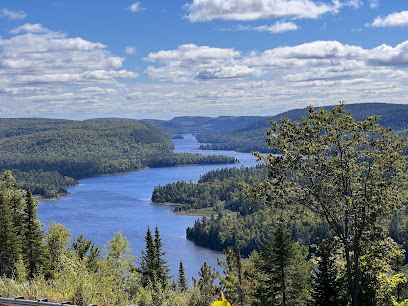
Belwood Lake Conservation Area
Experience the serene beauty of Belwood Lake Conservation Area, a perfect destination for outdoor activities, relaxation, and family fun in Ontario, Canada.

Colasanti's Tropical Gardens
Experience the captivating beauty of Colasanti's Tropical Gardens, a family-friendly oasis with lush gardens, a zoo, mini-golf, and delicious dining.
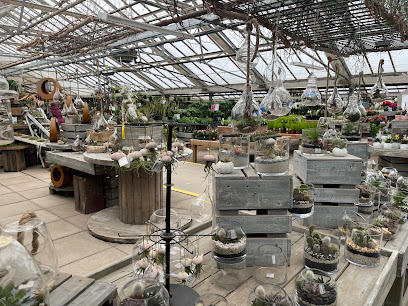
Fort McClary State Historic Site
Explore Fort McClary State Historic Site, where history meets natural beauty along the stunning shores of Kittery Point, Maine.
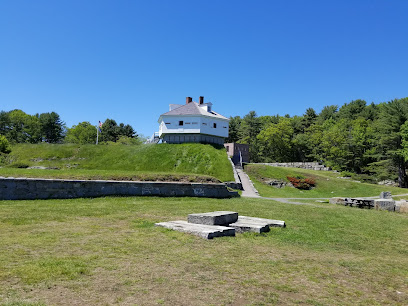
Parc de la Chute-Montmorency
Experience the breathtaking beauty of Parc de la Chute-Montmorency, a majestic waterfall and adventure hub just outside Quebec City.
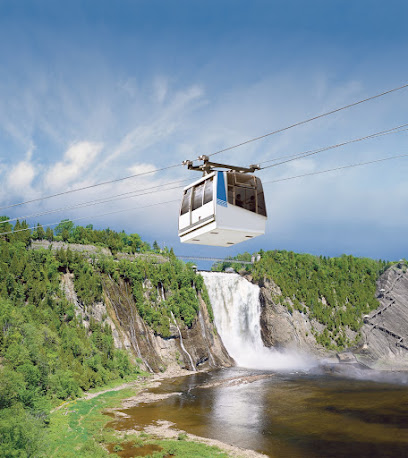
Georgian Bay Islands National Park
Explore the stunning landscapes and rich biodiversity of Georgian Bay Islands National Park, Ontario's hidden gem for nature lovers and adventure seekers.
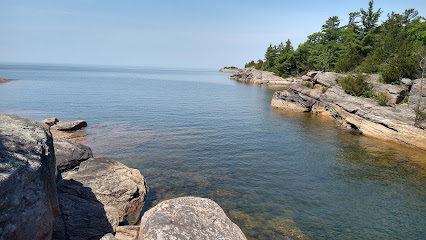
Point Au Roche State Park
Explore the natural beauty and recreational opportunities at Point Au Roche State Park, a top destination in Plattsburgh, New York.
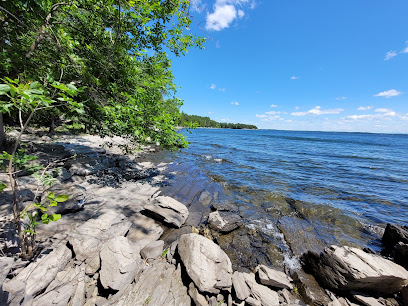
Borden-Carleton Visitor Information Centre
Explore Prince Edward Island with ease at the Borden-Carleton Visitor Information Centre, your ultimate travel companion on this beautiful island.
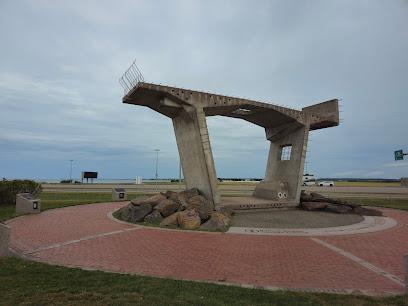
Keewaydin State Park
Explore the breathtaking landscapes and outdoor adventures at Keewaydin State Park in New York's Thousand Islands region, perfect for nature lovers.
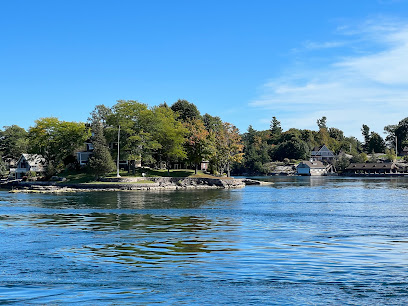
Fort Preble
Explore the historical significance and scenic beauty of Fort Preble, a captivating fortress and park in South Portland, Maine.
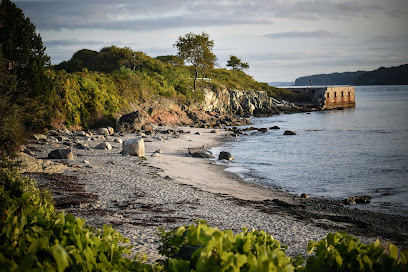
Skmaqn–Port-la-Joye–Fort Amherst National Historic Site
Discover the historical significance and natural beauty of Skmaqn–Port-la-Joye–Fort Amherst National Historic Site in Prince Edward Island.
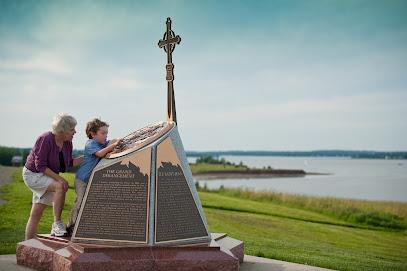
Port Borden Back Range Light
Explore the historic Port Borden Back Range Light, a picturesque lighthouse in Prince Edward Island, offering stunning views and rich maritime heritage.
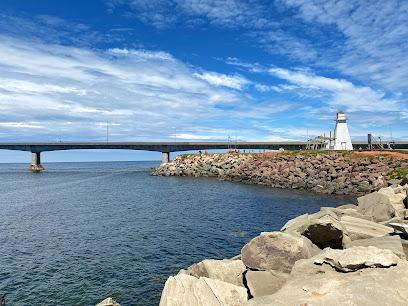
Victoria Seaport Lighthouse Museum
Experience the rich maritime history at Victoria Seaport Lighthouse Museum in Prince Edward Island, a must-visit tourist attraction for history lovers.
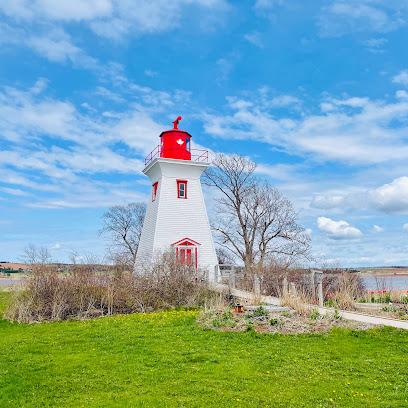
Port Borden Front Range Lighthouse
Explore the rich maritime heritage at Port Borden Front Range Lighthouse, a stunning historical landmark with breathtaking coastal views in Prince Edward Island.
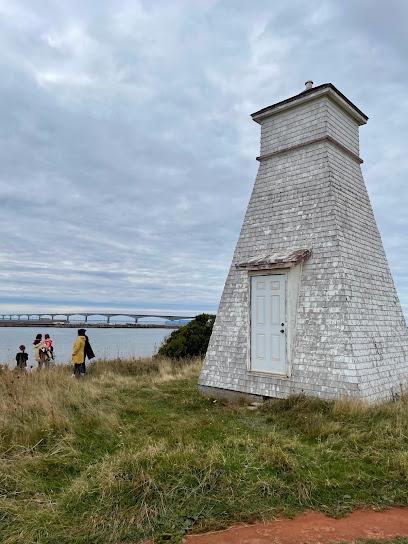
Essential places to dine
Bahama Breeze
Experience the vibrant flavors of Caribbean cuisine at Bahama Breeze in Livonia, MI – where every meal feels like a vacation.
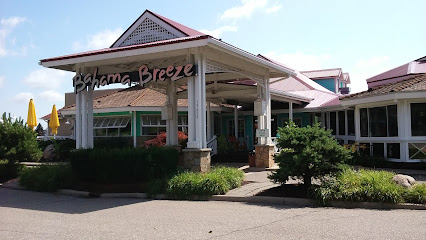
Rainforest Cafe
Discover a unique dining adventure at Rainforest Cafe in Auburn Hills - where delicious food meets an enchanting jungle atmosphere.
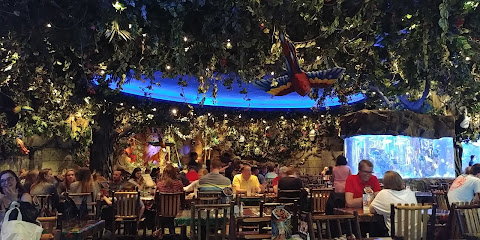
The Dunes Studio Gallery & Cafe
Discover a unique blend of culinary delights and artistic treasures at The Dunes Studio Gallery & Cafe in Brackley Beach.
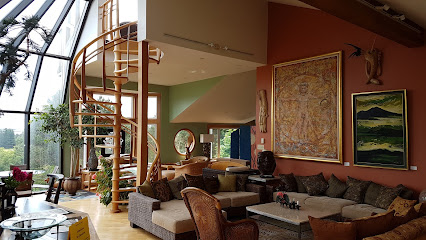
Cabot Beach Provincial Park
Discover the scenic beauty of Cabot Beach Provincial Park in Prince Edward Island – perfect for sunbathing, hiking, and family fun.
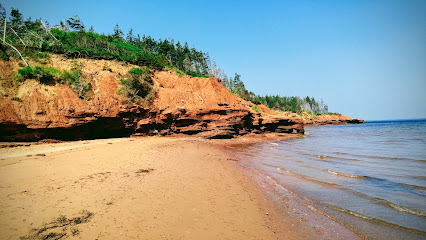
Savor
Experience culinary excellence at Savor, a must-visit restaurant near Niagara Falls offering fresh local dishes and a warm ambiance.
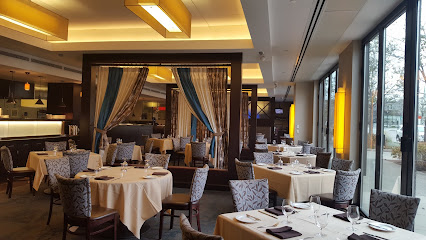
Gaspé Peninsula
Explore the stunning landscapes and rich cultural heritage of Quebec's breathtaking Gaspé Peninsula - a true haven for nature lovers.
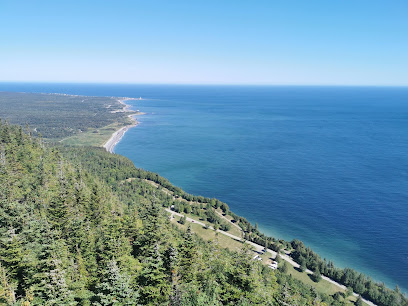
Thousand Islands Club
Discover fine dining at Thousand Islands Club on Wellesley Island - where exquisite cuisine meets stunning waterfront views.
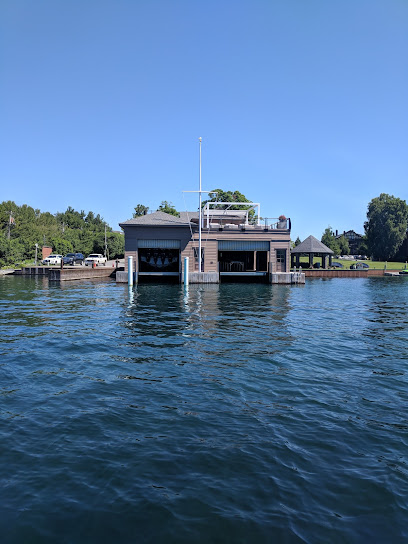
Markets, malls and hidden boutiques
Costco Wholesale
Experience the ultimate shopping adventure at Costco Wholesale in Brampton, where quality meets affordability across a vast selection of products.

Point Pelee National Park
Experience the stunning landscapes and diverse ecosystems at Point Pelee National Park, the southernmost point of Canada, perfect for nature lovers and adventure seekers.
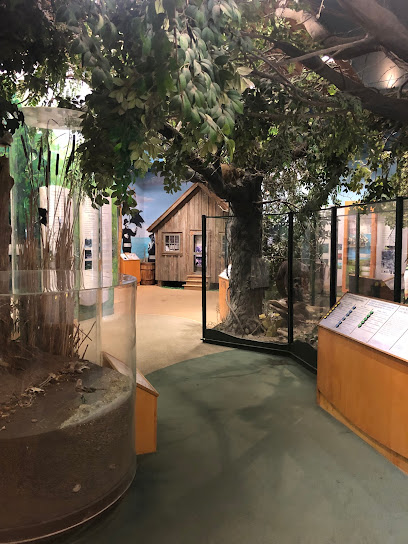
Walmart Supercentre
Discover unbeatable variety and value at Walmart Supercentre in Brampton, your one-stop shopping destination for groceries, electronics, clothing, and more.
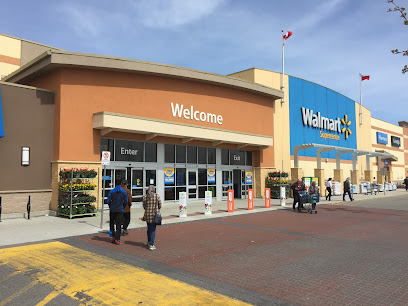
Southwick Beach State Park
Experience breathtaking views and outdoor adventures at Southwick Beach State Park, the perfect retreat for nature lovers and beachgoers.
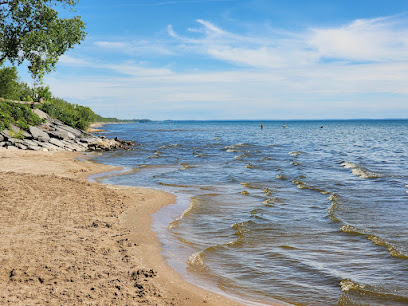
Fort McClary State Historic Site
Discover the rich history and scenic beauty of Fort McClary State Historic Site in Kittery Point, Maine.
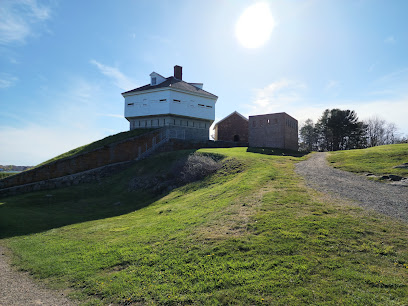
Lockport Locks & Erie Canal Cruises
Experience the enchanting history and scenic beauty at Lockport Locks & Erie Canal Cruises, a must-visit gem in New York for all travelers.
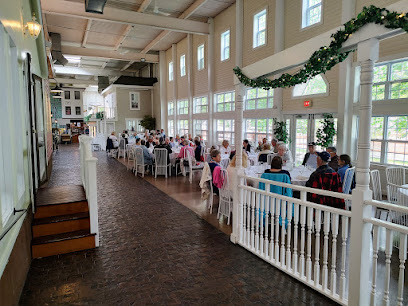
Point Au Roche State Park
Discover Point Au Roche State Park, a stunning natural retreat offering diverse landscapes, recreational activities, and a serene escape in New York.
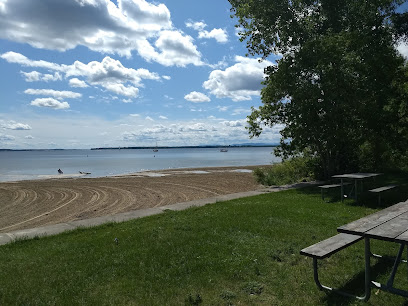
Keewaydin State Park
Explore Keewaydin State Park, a stunning state park in New York's Thousand Islands region, perfect for outdoor adventures and serene nature escapes.
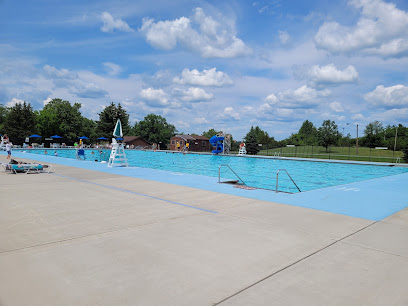
Grasslands National Park
Explore the breathtaking landscapes and rich biodiversity of Grasslands National Park, a unique gem in Saskatchewan's natural heritage.
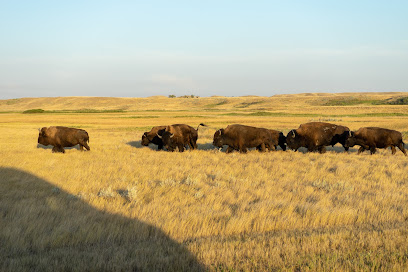
Golf Dorval
Discover Golf Dorval: A premier golfing destination in Quebec offering scenic landscapes, challenging courses, and a family-friendly atmosphere.

Fort Rodman
Explore Fort Rodman, a historic coastal fortress in New Bedford, offering rich military history and stunning waterfront views.
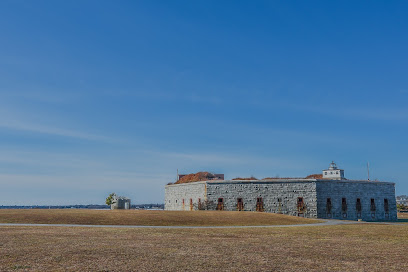
Sun Retreats Amherstburg
Experience the tranquility of Sun Retreats Amherstburg, an ideal RV park and campground in Ontario, perfect for family adventures and outdoor relaxation.
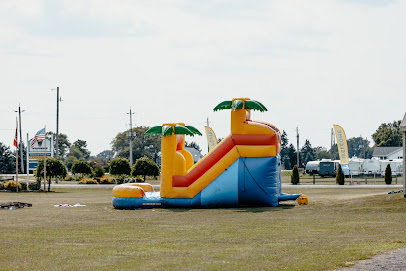
Arbor Hills
Experience the best of shopping and dining at Arbor Hills, a vibrant shopping mall in Ann Arbor, Michigan, perfect for tourists and locals alike.
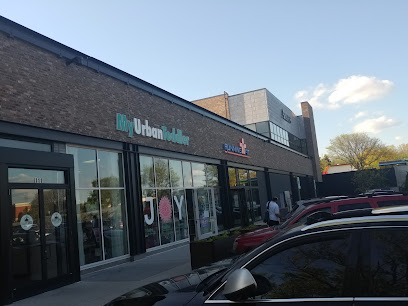
Club Wyndham Bay Voyage Inn
Experience the perfect blend of relaxation and adventure at Club Wyndham Bay Voyage Inn, your idyllic retreat in Jamestown, Rhode Island.
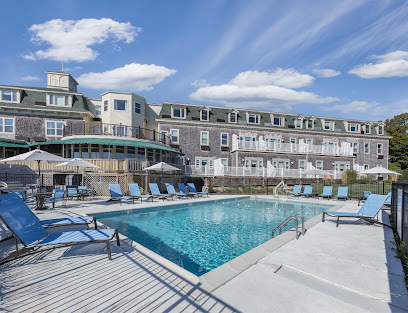
1000 Islands Campground
Discover the tranquility and adventure of 1000 Islands Campground, your perfect escape into nature's embrace along the St. Lawrence River.
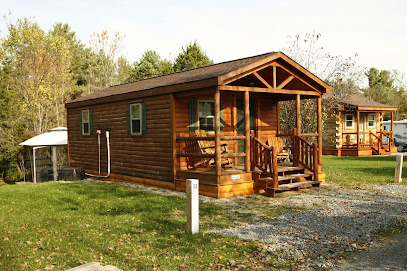
Essential bars & hidden hideouts
Vinsetta Garage
Experience the vibrant flavors and unique ambiance of Vinsetta Garage, a beloved grill and restaurant in Berkley, Michigan.
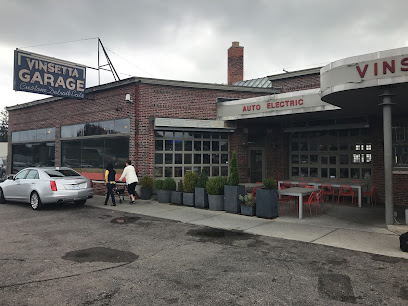
Twin Peaks
Experience the thrill of sports and delicious American cuisine at Twin Peaks, the premier sports bar in Oakbrook Terrace, Illinois.
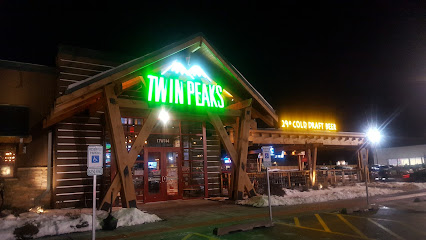
Hala Kahiki Lounge
Experience the vibrant spirit of Hawaii at Hala Kahiki Lounge, where tropical cocktails and a unique ambiance come together in River Grove, Illinois.
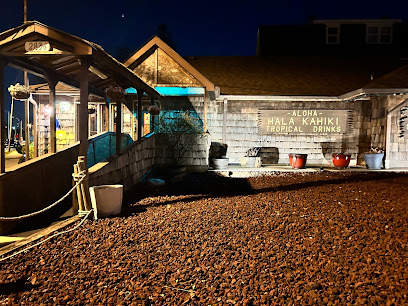
Atwater Cocktail Club
Discover the vibrant nightlife of Montreal at Atwater Cocktail Club, a stylish speakeasy offering expertly crafted cocktails in an intimate setting.
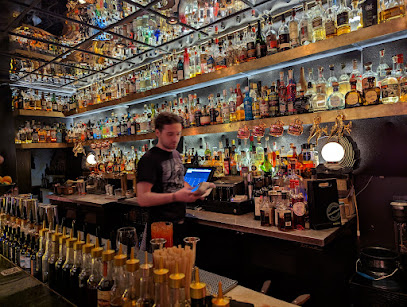
Silver Heights Restaurant & The Heights Lounge
Experience the culinary delights of Canadian and American cuisine at Silver Heights Restaurant & The Heights Lounge in Winnipeg, where every meal is a celebration of flavor.
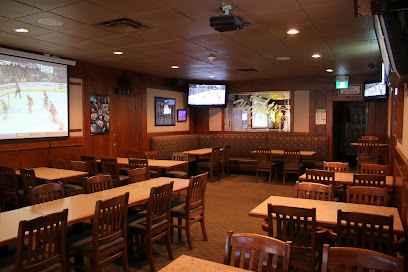
Pier 6
Experience the best seafood dining at Pier 6, where stunning waterfront views meet fresh New England flavors in Charlestown.
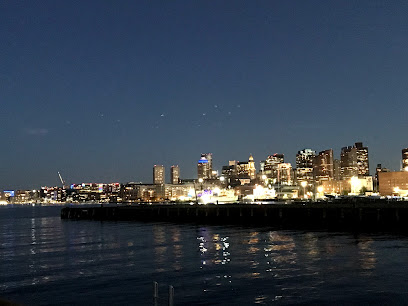
Le Majestique Montréal
Discover Le Majestique Montréal, where culinary creativity meets a vibrant nightlife in the heart of Plateau-Mont-Royal.
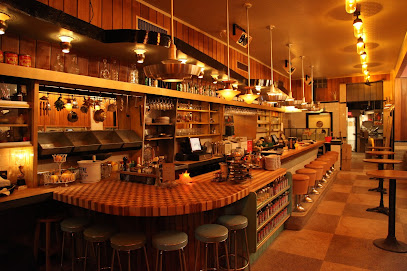
Red Star Kitchen + Bar
Discover Red Star Kitchen + Bar, where delicious American cuisine meets a vibrant sports bar atmosphere in the heart of Matteson, Illinois.
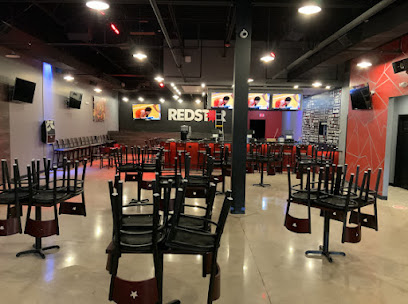
Nola Voodoo Tavern
Experience the vibrant flavors of New Orleans at Nola Voodoo Tavern in Denver, a lively spot for Creole cuisine and festive live music.
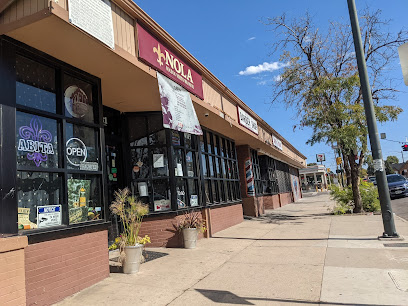
Harbor Haus Restaurant
Experience the best of Copper Harbor dining at Harbor Haus Restaurant, where fresh seafood meets stunning waterfront views, perfect for every occasion.
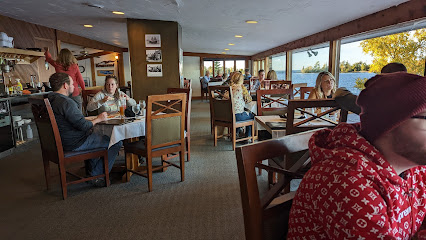
The Stuffed Olive Des Moines
Discover the flavors of tapas at The Stuffed Olive, a must-visit bar in downtown Des Moines, offering a unique culinary experience.
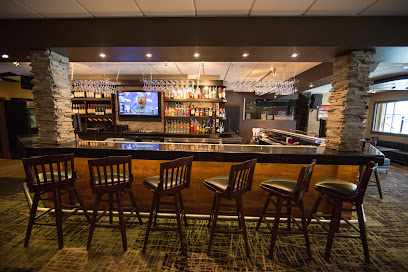
Tavern On the Main
Experience the perfect blend of grill and Mediterranean delights at Tavern On the Main in Clawson, Michigan.
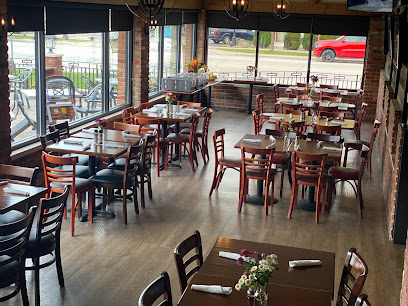
Shoreline Restaurant
Discover the Shoreline Restaurant in Ellison Bay, where mouthwatering American cuisine meets stunning natural beauty for an unforgettable dining experience.
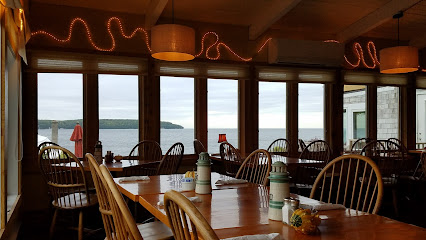
Bar Pompette
Experience the art of cocktail-making at Bar Pompette, a trendy bar in Toronto's Old Town offering unique drinks in a stylish setting.
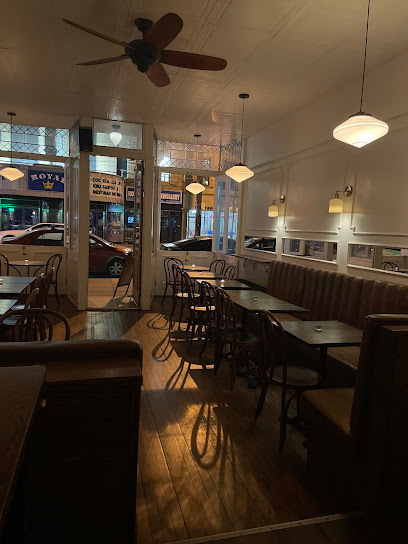
Local Phrases about Gulf Islands National Park Reserve
-
- HelloMarhaba
[mar-ha-ba] - GoodbyeMa'a salama
[ma-a sa-la-ma] - YesNa'am
[na-am] - NoLa
[la] - Please/You're welcomeMin fadlik
[min fad-lik] - Thank youShukran
[shuk-ran] - Excuse me/SorryAfsah
[af-sah] - How are you?Kayf halak?
[kayf ha-lak] - Fine. And you?Tamam. Wa ant?
[ta-mam. wa ant] - Do you speak English?Hal tatakalam al'injiliziya?
[hal ta-ta-ka-lam al-in-ji-li-zi-ya] - I don't understandAna la afham
[a-na la af-ham]
- HelloMarhaba
-
- I'd like to see the menu, pleaseA'ayiz ara alqayimah, min fadlik
[a-ayiz a-ra al-ka-yi-ma, min fad-lik] - I don't eat meatAna ma akul lahman
[a-na ma a-kul lah-man] - Cheers!Sahtain!
[sa-h-tain] - I would like to pay, pleaseA'ayiz as-sifr, min fadlik
[a-ayiz as-sif-r, min fad-lik]
- I'd like to see the menu, pleaseA'ayiz ara alqayimah, min fadlik
-
- Help!Musaidah!
[mu-sai-dah] - Go away!Irjaa!
[ir-jaa] - Call the Police!Istid'aw al-shurta!
[is-ti-da-wa al-shur-ta] - Call a doctor!Istid'aw Tabib!
[is-ti-da-wa ta-bib] - I'm lostTalatut
[ta-la-tut] - I'm illAna mareed
[a-na ma-reed]
- Help!Musaidah!
-
- I'd like to buy...A'ayiz ashtar...
[a-ayiz ash-tar] - I'm just lookingAna bass abhas
[a-na bas ab-has] - How much is it?Kam hadha?
[kam ha-dha] - That's too expensiveHadha ghali jiddan
[ha-dha gha-li jid-dan] - Can you lower the price?Hal tastaqil al'sa'ar?
[hal tas-ta-qil al-sa-ar]
- I'd like to buy...A'ayiz ashtar...
-
- What time is it?Kam alwaqt?
[kam al-waqt] - It's one o'clockHuwa alwaheed
[hu-wa al-wa-heed] - Half past (10)Nisf ba'd al-ashr
[nisf bad al-ashr] - MorningSabaah
[sa-baah] - AfternoonDhuhr
[dhuhr] - EveningMasaa
[ma-saa] - YesterdayAms
[ams] - TodayAl-yawm
[al-yawm] - TomorrowGhadan
[gha-dan] - 1Wahid
[wa-hid] - 2Itnan
[it-nan] - 3Thalatha
[tha-la-tha] - 4Arba'a
[ar-ba-a] - 5Khamsa
[kham-sa] - 6Sitta
[sit-ta] - 7Sab'a
[sa-ba-a] - 8Thamania
[tha-ma-ni-a] - 9Tis'a
[tis-a] - 10Ashara
[a-sha-ra]
- What time is it?Kam alwaqt?
-
- Where's a/the...?Ayn al...
[ayn al] - What's the address?Mada huwa al-alamat?
[ma-da hu-wa al-a-la-mat] - Can you show me (on the map)?Hal tastatee' an turiyani (al-khariTah)?
[hal tas-ta-tee an tu-ri-ya-ni (al-kha-ri-ta)] - When's the next (bus)?Mata yasir alqadim?
[ma-ta ya-sir al-qa-dim] - A ticket (to ....)Tathkira (ila ....)
[ta-th-ki-ra (i-la)]
- Where's a/the...?Ayn al...
History of Gulf Islands National Park Reserve
-
Long before European settlers arrived, the Gulf Islands were home to Indigenous peoples, including the Coast Salish. Archaeological evidence, such as shell middens and ancient village sites, highlight the deep connection these communities had with the land and sea. The islands were crucial for fishing, hunting, and gathering, and they remain culturally significant to Indigenous peoples today.
-
In the late 18th century, European explorers such as Captain George Vancouver and Spanish explorers like Dionisio Alcalá Galiano and Cayetano Valdés began charting the Gulf Islands. Their expeditions opened the door for European settlement. By the mid-19th century, settlers established farms, orchards, and fisheries, transforming the landscape.
-
The Hudson's Bay Company (HBC) played a significant role in the early economic development of the Gulf Islands. Trading posts and supply routes were established, facilitating the fur trade. The HBC's presence attracted more settlers and contributed to the islands’ early infrastructure.
-
In the early 20th century, Japanese immigrants settled on the Gulf Islands, particularly on Salt Spring Island. They developed thriving agricultural enterprises, particularly in strawberry farming. However, during World War II, the Canadian government forcibly relocated and interned Japanese-Canadians, disrupting their communities and leaving a lasting impact on the region.
-
Established in 2003, the Gulf Islands National Park Reserve was created to protect the unique ecological and cultural heritage of the region. The park encompasses over 15 islands and numerous islets and reefs, preserving diverse ecosystems, historical sites, and providing recreational opportunities for visitors.
-
The Gulf Islands are renowned for their biodiversity, housing rare and endangered species. Conservation efforts have been pivotal in preserving these natural habitats. Initiatives include the restoration of Garry oak ecosystems, protection of marine environments, and sustainable tourism practices to ensure the park's natural beauty endures for future generations.
Gulf Islands National Park Reserve Essentials
-
Gulf Islands National Park Reserve is located in British Columbia, Canada, and is accessible by ferry, seaplane, or private boat. The most common way to reach the park is by taking a BC Ferries service from Vancouver or Victoria to one of the Gulf Islands, such as Salt Spring Island or Pender Island. For those preferring to fly, seaplane services are available from Vancouver and Seattle, offering a scenic and quick route to the islands. Additionally, private boaters can access the park directly via the Strait of Georgia.
-
Once on the islands, transportation options include car rentals, bicycles, and local transit services. Many visitors choose to bring their own vehicles on the ferry, but car rentals are available on larger islands like Salt Spring Island. Bicycles are a popular way to explore the islands, and rentals are widely available. Public transit services, though limited, operate on some of the larger islands, providing connections between key points of interest. For exploring smaller islands, walking is often the best option.
-
The official currency in Canada is the Canadian Dollar (CAD). Credit cards are widely accepted throughout the Gulf Islands, including at most accommodations, restaurants, and shops. ATMs are available on the larger islands, but it is advisable to carry some cash, especially when visiting smaller islands or remote areas where card payment options may be limited. It’s also wise to notify your bank before traveling to avoid any issues with card transactions.
-
The Gulf Islands are generally very safe for tourists. However, it is always important to take standard precautions. Ensure your belongings are secure, and do not leave valuables unattended. While there are no specific high-crime areas targeting tourists, small thefts can occur. It's also important to be aware of natural hazards, such as changing tides and slippery trails, especially when hiking or participating in water activities.
-
In case of emergency, dial 911 for immediate assistance. The islands are equipped with medical facilities, including clinics and pharmacies, on the larger islands. It is recommended to have travel insurance that covers medical emergencies. For minor health issues, local pharmacies can provide over-the-counter medications. Familiarize yourself with the locations of the nearest medical facilities and keep emergency contact numbers handy.
-
Fashion: Do dress in layers, as the weather can change quickly. Comfortable, casual clothing and sturdy footwear are recommended for outdoor activities. Religion: There are no specific religious customs to observe, but always show respect when visiting cultural or historical sites. Public Transport: Do be courteous to drivers and fellow passengers. Public transit is limited, so plan your trips accordingly. Greetings: Do greet locals with a friendly 'hello' or 'hi.' Canadians are known for their politeness. Eating & Drinking: Do try local seafood and produce, which are highlights of the regional cuisine. Don't litter; always dispose of waste properly to protect the environment.
-
To experience the Gulf Islands like a local, visit farmers' markets, where you can purchase fresh, locally-grown produce and artisanal products. Engage with residents, who are often friendly and eager to share recommendations. Participate in community events or festivals, which are common throughout the year. Don't miss exploring the numerous hiking trails that offer stunning views and connect you with the natural beauty of the islands. Kayaking and boating are also popular activities, providing a unique perspective of the landscape and wildlife.
Nearby Cities to Gulf Islands National Park Reserve
-
Things To Do in Charlottetown
-
Things To Do in Bar Harbor
-
Things To Do in Bar Harbor
-
Things To Do in Acadia National Park
-
Things To Do in Acadia National Park
-
Things To Do in Bangor
-
Things To Do in Bangor
-
Things To Do in Camden
-
Things To Do in Camden
-
Things To Do in Miquelon
-
Things To Do in Miquelon
-
Things To Do in Langlade
-
Things To Do in Langlade
-
Things To Do in Rockland
-
Things To Do in Rockland








